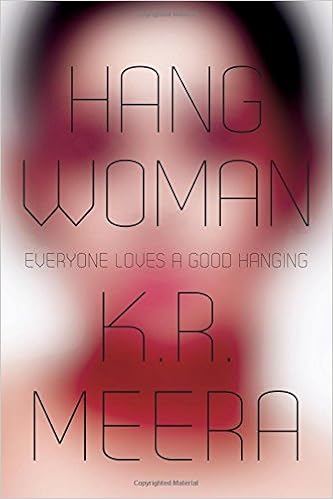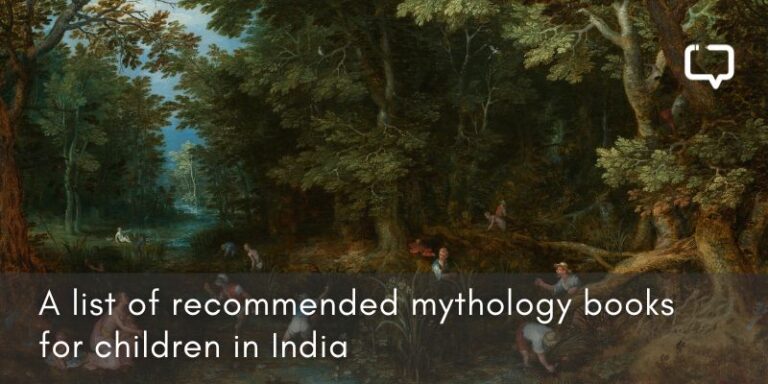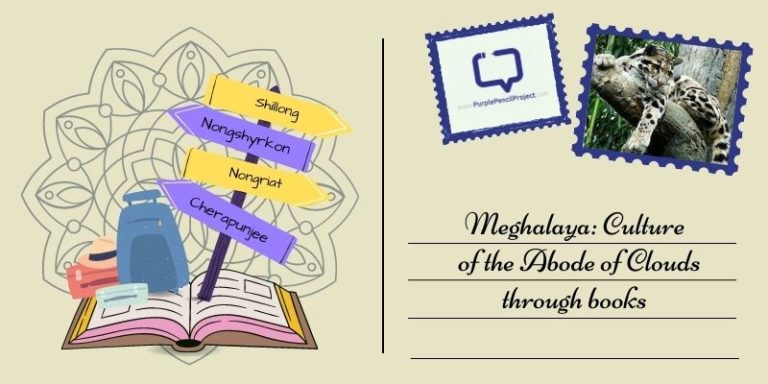Want to read Malayalam novels but don’t speak the language? In a country like India with such diverse cultures and languages, translation of regional literature helps its popularity beyond regional barriers.
It introduces us to cultures and stories from the nooks and corners of our own country. This helps bring about an openness to accept diversities and builds a feeling of unity.
It is no wonder that over the last few years, translated Indian Literature is no longer restricted to fringes but has taken center stage in the contemporary literary landscape, winning big at several mainstream awards.
Sahitya Akademi Awards are a prestigious literary honor given by National Academy of Letters to promote excellence in Indian writing and new trends.
Sahitya Akademi awards are given to works written in 24 languages; i.e. English, Rajasthani, and the 22 Indian Languages listed in the Eighth Schedule of the Indian Constitution. Out of which Malayalam has produced some excellent literary pieces over the years. Out of the many wonderful works we have listed out seven Sahitya Akademi Award winning Malayalam novels that has been translated to English.
A Preface to Man by Subhash Chandran

A Preface to Man, Subhash Chandran’s debut novel was originally published in Malayalam as Manushyanu Oru Aamukham in the year 2010 by DC Books. It has been translated into English by E.V Fathima and published by Harper Perennial.
It’s among the most critically acclaimed Malayalam novels, which also won the Kerala Sahithya Akademi Award, Kendra Odakkuzhal Award and Vayalar Award.
Synopsis: Jitendar a creative soul, who spent his life working at a toy company that makes drum-playing monkeys, dies abruptly. After Jitendar’s death, his wife Ann Marie comes across some of his writings in youth and many love letters he had send her during their courtship. Through these writings the saga of his village called Thachanakkara unfolds and what you get is a mesmerising epic novel with hundred odd characters and master strokes of magical realism. Set against the changing socio-cultural fabric of Kerala in the early twentieth century it weaves a tale of three generations of a feudal Nair family and the people that surround them during the period. The narrative with thought provoking insights about humanity is the highlight of the book and this is definitely a worthy read.
Hangwoman by K.R Meera

Hangwoman has been written by renowned Malayalam writer K.R Meera. The original Malayalam novel named ‘Aarachar’ was initially serialised in a Malayalam magazine in 53 volumes and later published as a novel by DC Books in 2011. It was translated by J. Devika and published by Hamish Hamilton in 2014 under the title ‘Hangwoman: Everyone loves a good hanging’.
Synopsis: Hangwoman is set in post -independent Bengal, and the main protagonist Chetna Grddha Mullick belongs to family of hangmen whose lineage dates back to 420 BC.
Chetana succeeds her father as the first hangwoman of India since her father has no male heirs other than her disabled brother Ramu. Through Chetana’s journey, K.R Meera questions the morality of capital punishment, the patriarchy which runs deep rooted in our society, the dismal levels of media ethics and much more.
The theme as well as the characters are grim and you come across multiple stories of death and cruelty through the tales of this hangman family in the backdrop of Kolkata. Chetana, her selfish lover Sanjiv Kumar Mitra, her family’s ideologies – all shake the reader, and evoke the questions of morality, right vs wrong, and more.
Govardhan’s Travels – Anand

Originally titled Govardhante Tathrakal was written by writer P. Sachidanandan under the pseudonym Anand, was published by DC.Books . It was translated to English under the title Govardhan’s Travels by Gita Krishnankutty and published by Penguin.
Synopsis: The premise of this story is unique. In this book Anandh recreates and releases Govardhan, a fictional character from Ander Nagari Chaupad Raja, a famous play by Bharatendu Harishchandra into real life.
Govardhan, an unjustly convicted character in the play, walks out from prison with the noose still around his head and travels through Indian history. He is representative of the victims who seek justice from history and society. Through his eyes we come across the violation of justice, the legal system and the systemic injustice that exists in the civilised world. We also realise there is no escape for the Govardhans from this wild world any time soon.
God’s Mischief by M.Mukandan

God’s Mischieg, originally titled Daivathinte Vikrithikal was written by famous Malayalam writer M.Mukandan and published by D.C books. The English translation was done by Prema Jayakumar and released by Penguin Books India in 2013.
Synopsis: Similar to other Mukundan stories, the setting of the nove is Mayyazhi, better known as Mahi.
The story is about the aftermath and changes in the life of people of this French colony post decolonisation. The lives of the people are so entwined with the French that once the British leave, poverty grips the colony. Some of the youth leave for France and Gulf in search of fortunes while many of the older generation are left behind reminiscing their glorious days of past.
We meet Father Alfonso who is a “magician” sorts, his daughter Elsie, a widowed Ayurveda Vaidyar Kumaran, and his two twin sons. Alfonso’s wife Maggie wishes to go back to France but Alfonso realises he has an inexplicable connection to this land.
Their daughter Elsie grows up with Shivan and Shashi, unwary of the troubles until the day of reckoning catches up with them and they pay the price of growing up. This book makes one think how helpless humans are before, yes, God’s Mischiefs.
The Infinite Grace by O.V. Vijayan

Gurusagam, is among the most well-known of Malayalam novels, originally written by the eminent literateur O.V. Vijayan and published by DC Books. It was translated by the author himself along with well-known novelist Ramesh Menon and published by Penguin.
Some believe O.V Vijayan would have been as popular as Marquez if a timely English translation of his popular odyssey Khasakinte Itihasam had gained momentum.
Synopsis: The Infinity of Grace, unlike O.V Vijayan’s early novels, is more inclined towards spirituality and speaks about the significance of a Guru in the life of a seeker. The main protagonist of the novel is Kunjunni, a journalist from Kerala, working in Delhi, on an assignment to report on the Bengal partition of 1971. Kunjunni meets his estranged Bengali wife Sivani and daughter Kalyani in Calcutta where he faces a life-changing truth, which disturbs him greatly. The rest of his journey is to find solace, during which he comes to realise that this human world is our best teacher.
The whole story revolves around this final realisation, its acceptance, and the peace that springs from it. It’s a multi-layered story written through various individual narratives which are entwined through Kunjunni’s character.
Agnisakshi. Fire, My Witness by Lalithambika Antharjanam

Agnisakshi meaning “with fire as witness” is among the many Malayalam novels written by Lalithambika Antharjanam.
Originally serialised in Mathrubhumi Illustrated Weekly, it was published as a book in 1976 by Current Books. It was translated to English by Vasanthi Sankaranarayanan and published by Oxford University Press.
Synopsis: The plot of the book is set against the traditions of Namboodiri community of Kerala and the repercussions of the Indian freedom struggle on this orthodox upper cast society.
Thethikutty, a liberal lady gets married to a very traditional Unni Nambudiri, who is from a well-known Brahmin family. Even though Unni Nambudiri is a compassionate man, Tethi finds it difficult to adhere to her husband’s orthodox ways. So, she decides to renounce her married life and sets out on her own journey while Unni Nambudiri decides to stick to his customs, renouncing his personal happiness.
There is also another significant character in the story, Thankam, Unni’s Nair cousin who plays an ally to these two. Finally, the unfinished story of Tethi and Unni culminates through Thankam in a very poignant way.
Chemmeen – Thakazhi Sivasankara Pillai

Chemmen, written by Thakazhi Sivasankara Pillai, was the first Malayalam novel to have won the Sahitya Akademi award, back in 1957. There have been many translations of this book; popular ones include Narayana Menon’s translation titled Anger of the Sea-Godess and Anita Nair’s translation by the name Chemmeen itself.
Synopsis: It’s a story based on a myth that existed among the fishermen community of Kerala. They believed if a wife commits adultery when a fisherman husband goes to sea, the sea goddess (kadalamma) will consume him.
In the novel, Karuthamma a Hindu woman from the community falls in love with Pareekutty, a Muslim man who helps her family. As time goes, due to some circumstances, Karuthamma is forced to marry Palani and move to his village. But her past continues to haunt their present lives. What follows is an emotional ride reverberating with folklore myth, drama and much more.





















7 Responses
An absolutely delightful list and will want to read all the books listed here except Chemmeen which I read years back. Totally loved the book recommendations here.
Thank you… Hope you pick few others too
This is a great and careful compilation. This adds so many books to my tbr!
Thank you and glad to hear that.
The best modern malayalam literature writers and award winning malayalam novels! Good article indeed!